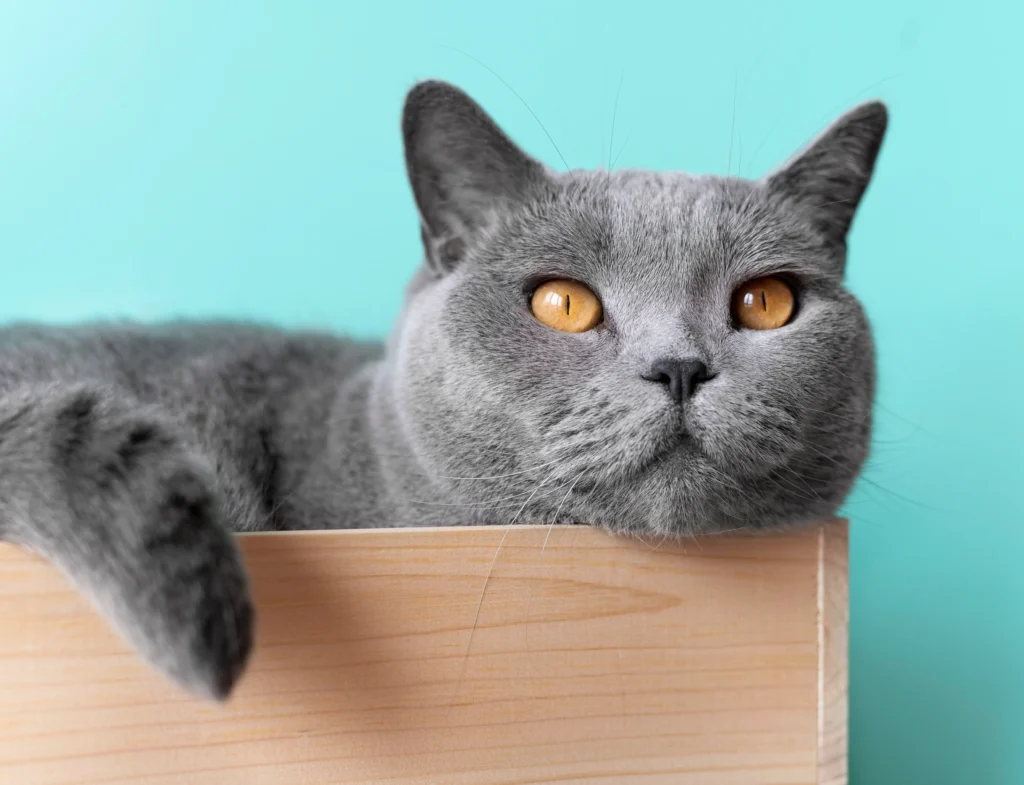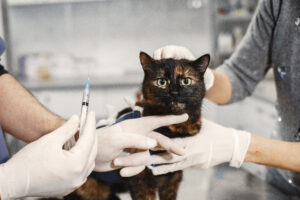Those round faces, plush coats, and charming personalities have made British Shorthair cats one of America’s most beloved breeds. But the journey to bringing home one of these magnificent felines begins with a crucial decision: choosing the right British Shorthair cat breeder. Whether you’re searching for a British Shorthair cat breeder near me on Google or willing to travel across state lines for the perfect kitten, knowing how to distinguish reputable breeders from questionable operations is essential.
The popularity of British Shorthairs has unfortunately led to an increase in irresponsible breeding practices. From health issues to temperament problems, the consequences of supporting substandard breeders can be heartbreaking—both for the cats themselves and the families who welcome them home.
In this comprehensive guide, we’ll explore seven critical red flags to watch for when evaluating British Shorthair cat breeder options. We’ll also provide guidance on finding reputable British Shorthair breeders across different regions including the USA, UK, Canada, and specific states like Texas, Florida, and California. Whether you’re a first-time cat parent or an experienced feline enthusiast, this information will help ensure your new British Shorthair comes from a breeder who prioritizes health, temperament, and ethical practices.
Understanding the British Shorthair Breed
Before diving into breeder red flags, it’s helpful to understand what makes this breed special and why proper breeding practices are so important for their well-being.
The Distinctive British Shorthair
British Shorthairs are known for several key characteristics:
- Round, chubby faces with prominent whisker pads
- Dense, plush coats that feel like luxurious teddy bears
- Sturdy, cobby body type with substantial bone structure
- Calm, easygoing temperaments with moderate activity levels
- Various coat colors, though blue (gray) remains the most iconic
These distinctive traits come from centuries of selective breeding, and maintaining them properly requires knowledgeable, ethical breeding practices.
Why Proper Breeding Matters
The best British Shorthair breeders understand the genetic foundations of the breed and work carefully to:
- Preserve desirable physical and temperament traits
- Minimize hereditary health problems
- Maintain genetic diversity within the breed
- Socialize kittens appropriately during crucial developmental periods
- Support new owners throughout the cat’s life
When breeders cut corners, both the cats and their future families suffer the consequences.
Red Flag #1: No Health Testing or Genetic Screening
Perhaps the most serious warning sign when evaluating a British Shorthair cat breeder is the absence of proper health testing.
What Health Testing Should Include
Reputable British Shorthair breeders routinely test for:
- Hypertrophic Cardiomyopathy (HCM): Regular cardiac ultrasounds by certified cardiologists
- Polycystic Kidney Disease (PKD): DNA testing to identify carriers
- Blood Type: Critical for breeding decisions and potential transfusion needs
- Progressive Retinal Atrophy (PRA): Genetic testing for this eye condition
- Patella Luxation: Physical exams to check for this orthopedic issue
Expert breeder Catherine Johnson of BlueBell British Shorthairs explains: “Health testing is non-negotiable in ethical breeding. I conduct comprehensive cardiac screenings with board-certified cardiologists annually for all my breeding cats, plus genetic testing for PKD and PRA. These tests aren’t cheap, but they’re essential for producing healthy kittens and strengthening the breed.“
Warning Signs to Watch For
Be wary when a breeder:
- Cannot provide documentation of health testing
- Claims their cats are “just healthy” without specific testing
- Tests only for one condition while ignoring others
- Uses vague terms like “vet-checked” instead of specific screening protocols
- Gets defensive when asked about health testing practices
While comprehensive health testing doesn’t guarantee perfect health, it dramatically reduces the risk of hereditary problems and demonstrates the breeder’s commitment to the breed’s wellbeing.
Red Flag #2: Poor Living Conditions
The environment where kittens are raised significantly impacts their physical and behavioral development. When searching for a British Shorthair cat breeder near me, visiting the cattery in person (or at minimum, seeing detailed videos) is invaluable.
What to Look For in a Quality Cattery
Healthy breeding environments include:
- Clean, spacious living areas with ample room for activity
- Enrichment opportunities like climbing structures, toys, and scratching surfaces
- Proper ventilation and temperature control
- Socialization with humans and potentially other pets
- Separation of breeding cats from the general population when needed
- Limited numbers of cats relative to the space and caretakers available
Concerning Conditions to Note
Be concerned if you observe:
- Overcrowded spaces with too many cats in limited areas
- Strong ammonia odors suggesting inadequate cleaning
- Cats that appear fearful, ill, or have discharge from eyes or nose
- Lack of fresh water or clean food dishes
- Excessively caged cats with limited freedom to move and explore
- Breeders who won’t show you where the cats live
Melissa Thompson, who drove three states to find her British Shorthair from a reputable British Shorthair breeder, shares: “When I visited the cattery in person, I was impressed by how the kittens were being raised in the breeder’s living room, exposed to normal household sounds and activities. The contrast was striking compared to another breeder who only wanted to meet in a public place and wouldn’t show me their facility. That was an immediate red flag for me.“
Red Flag #3: Questionable Breeding Practices
How a breeder makes mating decisions and manages their breeding program reveals much about their ethics and knowledge.
Ethical Breeding Standards
The best British Shorthair breeders adhere to practices like:
- Limiting breeding frequency for queens (female cats)
- Appropriate retirement age for breeding cats (typically around 5-6 years)
- Careful selection of breeding pairs based on complementary traits
- Avoiding inbreeding or excessive line-breeding
- Limiting the number of litters per year
- Never breeding cats with hereditary defects or poor temperaments
Problematic Practices to Avoid
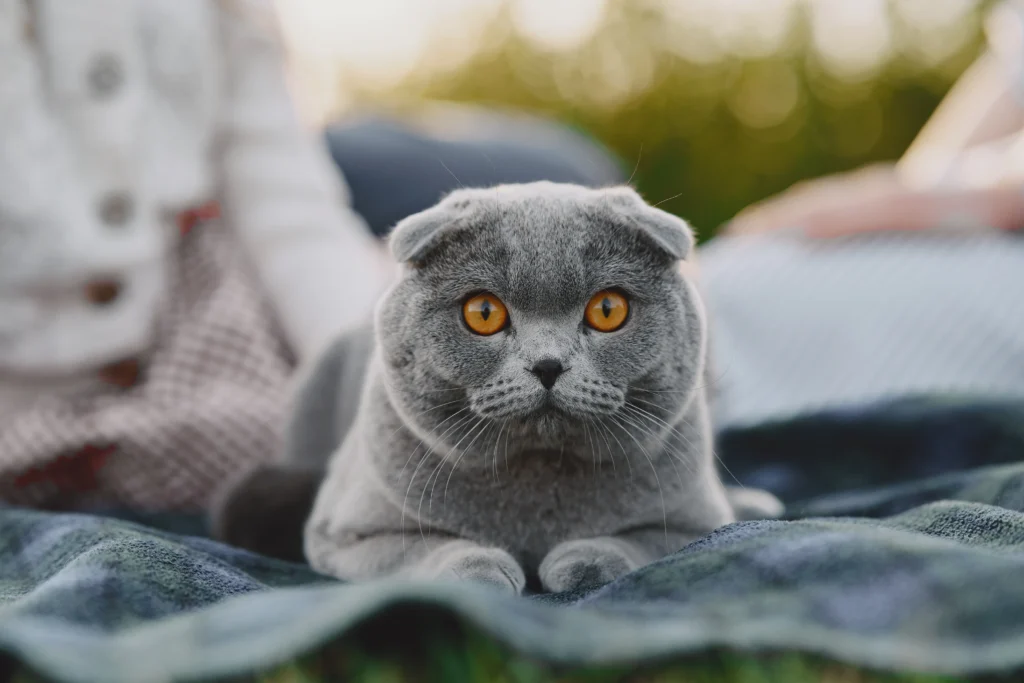
Be wary of breeders who:
- Always have kittens available year-round (suggesting over-breeding)
- Breed extremely young queens (under 1 year) or continue breeding older cats
- Offer unusual colors not standard to the breed (suggesting crossbreeding)
- Produce excessive numbers of litters relative to their facility size
- Make exaggerated claims about “rare” colors or features
- Focus breeding solely on exotic colors rather than health and temperament
When examining British Shorthair kittens for sale, it’s worth noting that responsible breeders typically have waiting lists and don’t constantly produce litters. As Dr. Elizabeth Morgan, feline veterinarian, explains: “A quality breeding program prioritizes the health and wellbeing of each cat over quantity. When I see patients from good breeders, they typically produce only a few carefully planned litters each year, giving proper attention to each kitten’s development.“
Red Flag #4: No Contracts or Health Guarantees
The paperwork a breeder provides reveals much about their professionalism and commitment to the cats they produce.
What Should Be Included
When purchasing from reputable British Shorthair breeders, expect:
- Written health guarantee covering genetic conditions
- Contract outlining breeder and buyer responsibilities
- Spay/neuter agreement for pet-quality kittens
- Return policy if you cannot keep the cat
- Registration papers from a recognized cat association
- Vaccination and deworming records
- Microchip information or recommendations
Red Flag Paperwork Issues
Be cautious of breeders who:
- Operate on handshake deals without written agreements
- Offer no health guarantee or extremely limited coverage
- Use vague contract language with loopholes
- Require questionable stipulations like specific foods or supplements
- Can’t provide registration documentation
- Rush through paperwork without explaining terms
James Wilson, who purchased a British Shorthair from a British Shorthair cat breeder California based operation, shares his experience: “My breeder provided a 10-page contract covering everything from health guarantees to what happens if I can’t keep my cat. Initially, I thought it was excessive, but I’ve come to appreciate that this level of detail showed their commitment to the cats’ welfare throughout their lives. When a friend got a kitten with minimal paperwork, they later faced expensive health issues with no recourse.“
Red Flag #5: Poor Communication and Lack of Transparency
How a breeder communicates before, during, and after the sale indicates their dedication to both their cats and the families who adopt them.
Characteristics of Professional Communication
Reputable British Shorthair breeders typically:
- Respond to inquiries promptly but thoroughly
- Ask screening questions about your home environment, experience, and expectations
- Provide detailed information about their breeding program
- Share plenty of photos and videos of available kittens and facilities
- Offer references from veterinarians and previous buyers
- Remain available for questions after you bring your kitten home
- Show genuine interest in the welfare of their kittens
Communication Red Flags
Be wary when breeders:
- Give vague or inconsistent answers to direct questions
- Focus exclusively on payment and availability rather than matching kittens to appropriate homes
- Pressure you to decide quickly without adequate information
- Refuse to provide veterinary references
- Become defensive when asked reasonable questions about their practices
- Disappear after receiving payment
- Show disinterest in your home situation or experience level
Sarah Anderson, who researched numerous options before selecting a British Shorthair cat breeder UK operation that shipped to the US, notes: “The breeder I eventually chose stood out because they spent almost an hour on our first call asking about my living situation, experience with cats, and expectations. They wanted to ensure their kitten was going to the right home as much as I wanted to ensure I was choosing the right breeder. That level of care spoke volumes.“
Red Flag #6: Age of Kittens at Adoption
The age at which kittens leave their mother and littermates significantly impacts their physical and behavioral development.
Appropriate Age for Adoption
Most reputable British Shorthair breeders adhere to these guidelines:
- Minimum 12 weeks old before leaving the breeder
- Fully weaned and eating solid food independently
- Initial vaccinations completed
- Basic litter box habits established
- Sufficient socialization with people and potentially other animals
- Adequate time with mother and littermates to learn appropriate behaviors
Early Release Concerns
Be extremely cautious of breeders offering kittens that are:
- Under 12 weeks old (particularly concerning under 8 weeks)
- Not fully weaned or dependent on formula
- Unvaccinated or incompletely vaccinated
- Showing signs of insecurity or fear
- Unusually small for their stated age
Veterinarian Dr. Amanda Rodriguez warns: “Kittens separated from their mothers too early often develop behavioral problems including inappropriate biting, poor litter box habits, and anxiety. They also miss crucial developmental nutrition from their mother’s milk, which can affect their immune system and growth. I never recommend adopting a kitten younger than 12 weeks, and for British Shorthairs, which mature slowly, 14 weeks is even better.“
Red Flag #7: Price Extremes and Payment Policies
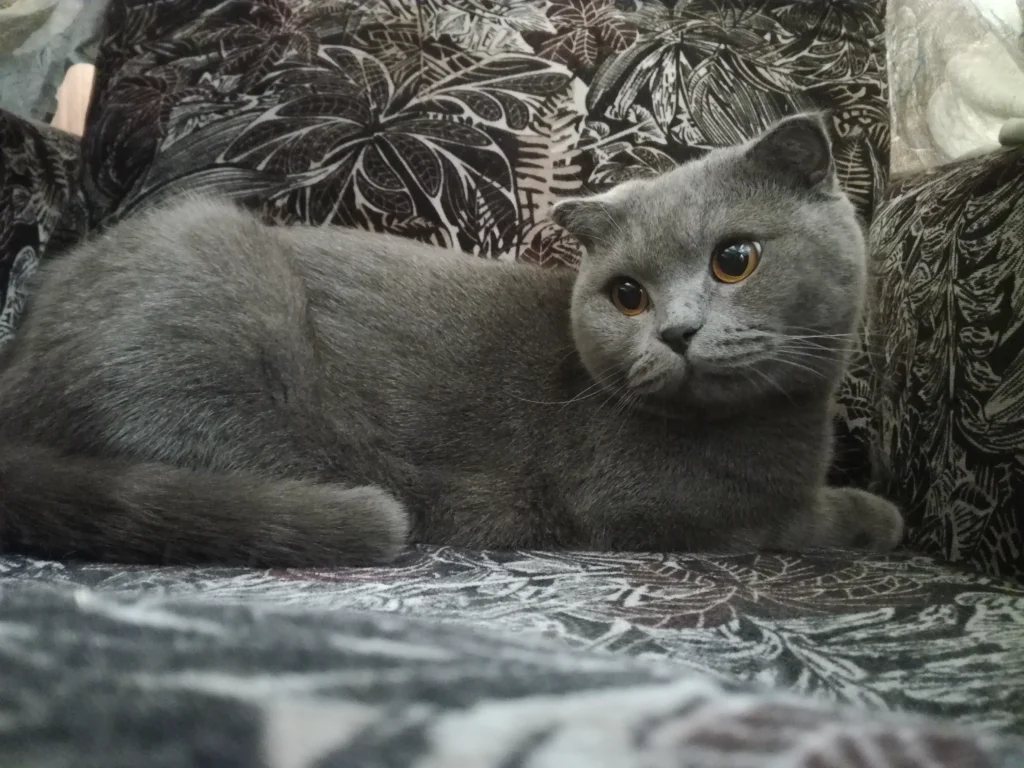
While cost shouldn’t be the only consideration, pricing practices can reveal much about a breeder’s ethics and priorities.
Understanding Reasonable Pricing
When looking at British Shorthair kittens for sale, pricing considerations include:
- Geographic variations: Prices from a British Shorthair cat breeder Texas might differ from those in a British Shorthair cat breeder Florida operation due to regional cost differences
- Quality differences: Show-quality kittens typically cost more than pet-quality
- Color variations: Rare colors may command premium prices, though be wary of excessive premiums
- Included services: Spay/neuter, vaccinations, microchipping, and genetic testing increase value
- Current market ranges: In the USA, typical prices range from $1,500-$3,000 for pet-quality kittens
Price-Related Red Flags
Be cautious when encountering:
- Extremely low prices that seem too good to be true
- Wildly inflated prices without clear justification
- “Bargain” kittens without health guarantees or registration
- Substantial non-refundable deposits required sight-unseen
- Cash-only policies with no receipts
- Unwillingness to discuss price components
- Requirement for payment via untraceable methods
Michael Bradley, who researched extensively before purchasing from a British Shorthair cat breeder Canadaoperation, shares: “I was initially drawn to a breeder offering kittens at half the typical market rate, but further investigation revealed they weren’t conducting health testing, kittens were leaving at 8 weeks, and they couldn’t provide registration papers. The bargain price would have potentially cost thousands in veterinary bills later. I ultimately paid more upfront to a reputable breeder, but the peace of mind was worth it.“
Finding Reputable British Shorthair Breeders by Region
Finding quality breeders varies by location. Here’s guidance for various regions:
British Shorthair Cat Breeder USA
When searching for a British Shorthair cat breeder USA based operation:
- Check national cat registries like CFA (Cat Fanciers’ Association) and TICA (The International Cat Association)
- Attend cat shows to meet breeders in person
- Join breed-specific online communities for recommendations
- Verify breeder credentials with registering organizations
- Be willing to travel or wait for the right breeder rather than choosing based solely on convenience
British Shorthair Cat Breeder UK
For those considering importing from a British Shorthair cat breeder UK operation:
- Research GCCF (Governing Council of the Cat Fancy) registered breeders
- Understand import requirements including vaccinations and documentation
- Consider shipping costs and stress on the kitten
- Verify the breeder’s experience with international buyers
- Confirm health guarantees still apply internationally
British Shorthair Cat Breeder Canada
When evaluating a British Shorthair cat breeder Canada operation:
- Check CCA (Canadian Cat Association) and TICA registrations
- Understand cross-border requirements if importing to the US
- Verify provincial/territorial licenses where applicable
- Consider climate considerations for shipping if not picking up personally
State-Specific Considerations
For those searching in specific states:
British Shorthair Cat Breeder Texas:
- Verify adequate cooling systems due to hot climate
- Check for state-specific licenses and permits
- Consider Hurricane evacuation plans for coastal breeders
British Shorthair Cat Breeder Florida:
- Evaluate hurricane preparedness plans
- Check for appropriate climate control in the high humidity
- Verify Florida Department of Agriculture licenses for larger operations
British Shorthair Cat Breeder California:
- Check compliance with strict California breeding regulations
- Verify proper preparation for potential wildfire or earthquake evacuations
- Confirm appropriate pricing relative to the higher cost of living
How to Find the Best British Shorthair Breeders
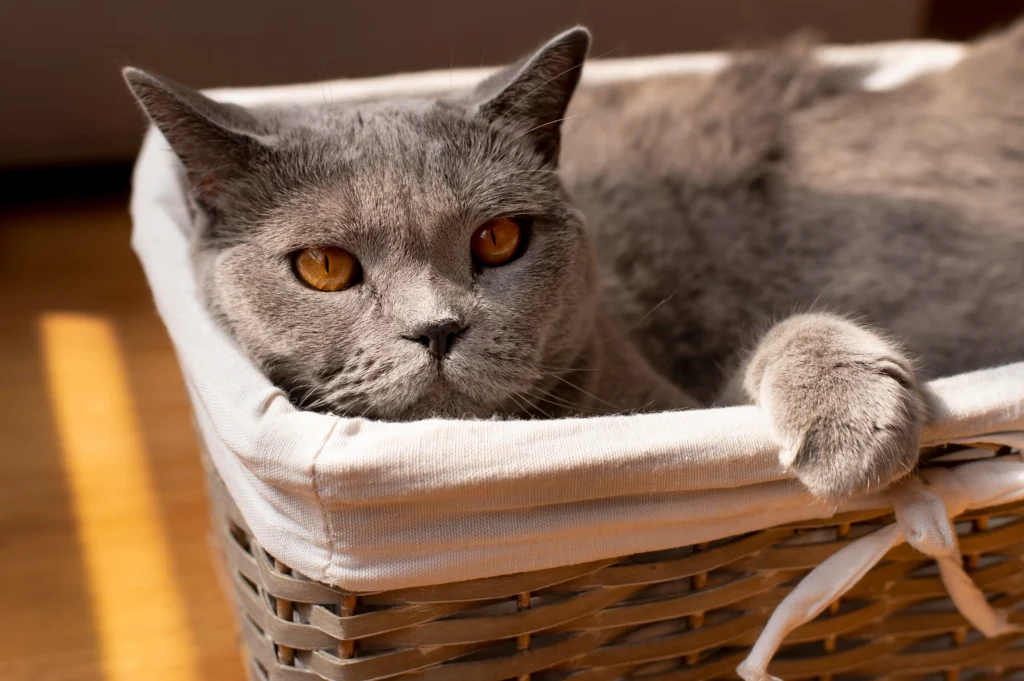
Beyond avoiding red flags, here are proactive steps to find truly exceptional breeders:
Research and Referrals
- Join breed-specific forums and social media groups
- Attend cat shows to see different breeding programs
- Ask veterinarians for recommendations
- Contact breed clubs for breeder referrals
- Speak with current owners about their experiences
Questions to Ask Potential Breeders
When evaluating a British Shorthair cat breeder near me or farther afield, ask:
- How long have you been breeding British Shorthairs specifically?
- What health testing do you perform, and can I see documentation?
- What genetic issues have appeared in your lines, and how do you address them?
- How many breeding cats do you maintain?
- How many litters do you produce annually?
- What socialization do kittens receive before placement?
- What ongoing support do you provide after adoption?
- Can I visit your cattery or see detailed videos?
- Can you provide references from veterinarians and previous buyers?
- What is your process for matching kittens to homes?
Green Flags: Signs of Excellence
Look for these positive indicators when evaluating reputable British Shorthair breeders:
- Involvement in breed clubs and cat show competitions
- Mentoring new breeders or educational activities
- Ongoing education through conferences and seminars
- Transparency about challenges within their program
- Relationships with feline health researchers
- Willingness to say “no” if their kittens aren’t right for your situation
- Evidence of placing cats’ welfare above profit
Experienced British Shorthair owner Emily Parker shares: “After dealing with health issues from my first British Shorthair from a questionable breeder, I spent months researching before choosing my current breeder. The difference has been night and day. My current cat’s breeder still checks in years later, sends birthday cards, and has created an online community for all her kitten buyers to share updates. That level of ongoing care demonstrates true dedication to the cats they produce.“
Making the Final Decision
After thorough research, trust your instincts when making this important decision:
- Be willing to wait for the right kitten from the right breeder
- Don’t compromise on major red flags due to impatience
- Consider the lifetime cost of potential health issues from poor breeding
- Remember that the purchase price is a small fraction of the lifetime cost of cat ownership
- Prioritize temperament and health over specific colors or patterns
Conclusion: A Responsibility to the Breed and Your Future Cat
Choosing a British Shorthair cat breeder is more than a consumer decision—it’s a choice that impacts the welfare of individual cats and the breed as a whole. When buyers support ethical breeders, they create market pressure that encourages responsible practices throughout the industry.
Whether you’re searching for a British Shorthair cat breeder near me or willing to import from a British Shorthair cat breeder UK operation, taking the time to evaluate potential breeders carefully will pay dividends in the health, temperament, and longevity of your new feline companion.
The best British Shorthair breeders combine knowledge, ethics, and genuine love for the breed. They understand that their responsibility extends beyond producing kittens to ensuring each cat lives the healthiest, happiest life possible. By recognizing the red flags outlined in this guide and seeking out breeders who demonstrate true commitment to excellence, you’re taking the first and perhaps most important step in your journey with these magnificent felines.
Remember that a well-bred British Shorthair from a reputable source is an investment in 12-20 years of companionship. The additional time, effort, and potentially higher initial cost of working with an exceptional breeder will be repaid many times over in the joy of sharing your life with a healthy, well-adjusted cat who embodies the best of this beloved breed.
FAQs About Finding British Shorthair Breeders
Q: How much should I expect to pay for a British Shorthair kitten from a reputable breeder?
A: In the United States, prices typically range from $1,500-$3,000 for pet-quality British Shorthair kittens from reputable breeders, with show-quality kittens commanding higher prices. Regional variations exist, with metropolitan areas generally having higher prices. Be wary of prices significantly below this range, as they often indicate corners being cut in health testing, care, or breeding practices.
Q: Is it better to adopt from a British Shorthair cat breeder near me or to import from a distance?
A: Proximity offers advantages like the ability to visit multiple times, easier transportation for the kitten, and potentially more accessible ongoing support. However, limiting your search geographically may mean missing exceptional breeders further away. The quality of the breeder should ultimately outweigh location considerations, though be especially thorough in your research if importing internationally.
Q: How long should I expect to wait for a kitten from a reputable breeder?
A: Quality breeders typically have waiting lists ranging from several months to over a year. Immediate availability of kittens can be a red flag suggesting volume breeding practices. The best breeders plan litters carefully and match kittens to homes based on temperament and buyer preferences, which requires time. Being willing to wait demonstrates to good breeders that you prioritize quality over immediate gratification.
Q: Should I choose a breeder who specializes exclusively in British Shorthairs or one who works with multiple breeds?
A: Specialization in British Shorthairs often indicates deeper knowledge of breed-specific health issues, genetics, and temperament traits. While some excellent breeders do work with two complementary breeds, those breeding numerous different breeds may struggle to maintain the specific expertise needed for each. In general, breeders focusing primarily or exclusively on British Shorthairs tend to develop greater breed-specific experience.
Q: Is it a red flag if a breeder won’t ship their kittens?
A: Actually, many of the most reputable breeders either don’t ship at all or ship only under specific circumstances with trusted carriers. The stress of shipping on young kittens is significant, and quality breeders often prefer buyers who are willing to travel to collect their kitten personally. A refusal to ship may indicate a breeder who prioritizes the kitten’s welfare over convenience or profit.


